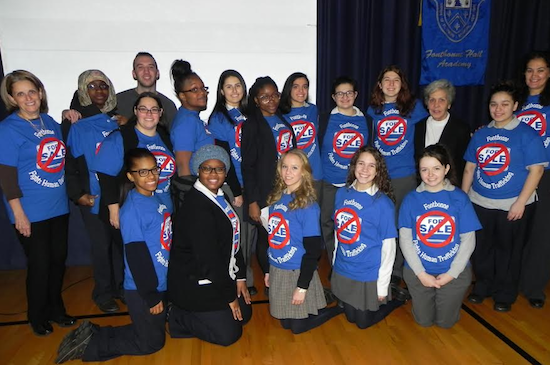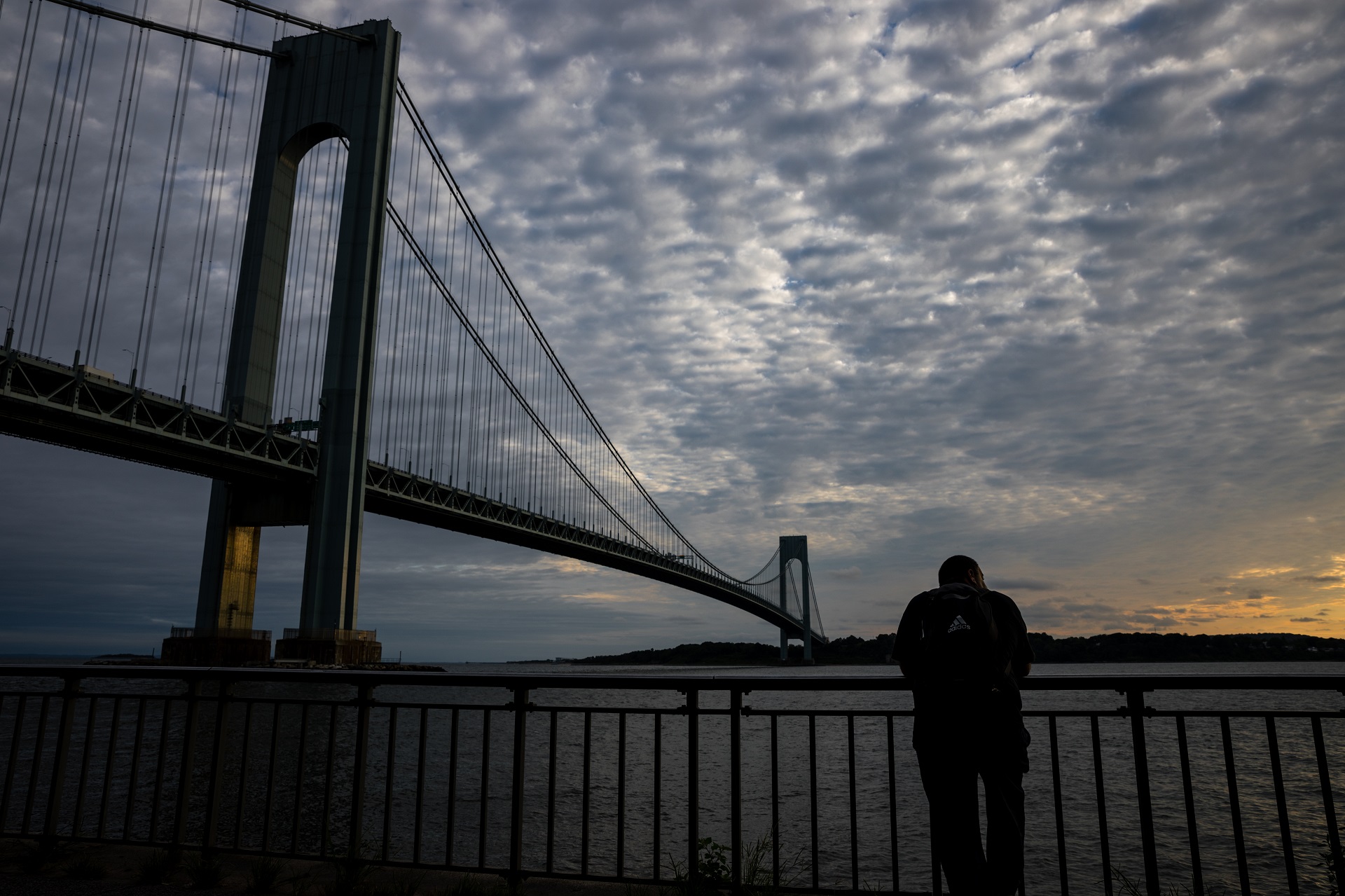Fontbonne Hall students fight sex trafficking
Campaign seeks to raise awareness of ‘human bondage'

Screen Shot 2014-01-09 at 12.52.44 PM.png
There’s a dark side to the Super Bowl that no one likes to talk about.
Each year, thousands of young women are brought into the city where the Super Bowl is played and are forced to perform sex acts on men who spend three days getting drunk and partying prior to the big game, according to students at Fontbonne Hall Academy in Bay Ridge, who cited research they conducted into the issue of human trafficking.
The students said their research, which included looking at websites and reading books and articles on the topic, showed that the victims are often immigrants who arrived in the U.S. with no money and fell into the hands of unscrupulous men who promised to get them legitimate jobs but instead forced them into lives of prostitution.
